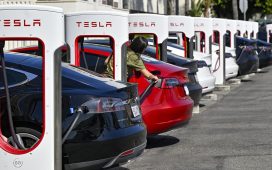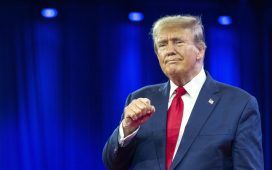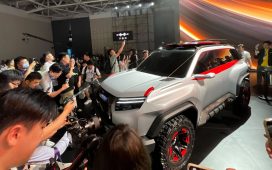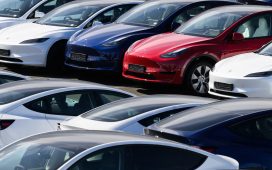CFO Zach Kirkhorn said on an earnings call that the regulatory credit business was “stronger than our expectations.” In the first nine months of 2020, Tesla sold nearly $1.2 billion worth of credits, vs. $594 million in all of 2019.
Rival automakers use the credits to offset their sales of gasoline-powered vehicles in the U.S. and other markets.
Last year, filings showed that General Motors and Fiat Chrysler Automobiles were among those paying Tesla for credits, and FCA later said it planned to spend $2 billion on regulatory credits over the next few years to minimize the amount of emissions-related fines it will pay in Europe and the U.S.
But Tesla might not be able to keep growing its credits business for much longer. The money it has made from them so far is largely a result of Tesla’s first-mover status in the EV space, and that advantage could soon fade as competitors race to replicate its success with their own EVs.
“We would not be able to get these credits if other car companies just made electric cars that were compelling,” CEO Elon Musk told Automotive News this summer.
Nearly 100 EVs and plug-in hybrids are coming to market from now through 2024. They include Ford’s Mustang Mach-E crossover, which will hit dealerships by the end of the year, and the GMC Hummer, unveiled last week.
Jessica Caldwell, Edmunds’ executive director of insights, said that could threaten Tesla’s credits business while also diminishing its overall appeal.
“Everything that makes Tesla so competitive right now, including being early to market and its overall cool factor, are in jeopardy as more entrants hit the market,” she said. “With more EV launches on the horizon, Tesla has a big, red target on its back. And although there have been several so-called ‘Tesla killers’ produced with little success, it’s only a matter of time before someone else gets the formula right.”
Wall Street, however, remains enamored with the company and its potential for growth.
Morgan Stanley analyst Adam Jonas said he was impressed with the company’s $1.4 billion free cash flow.
“The company appears on track to generate material positive free cash flow in 2020 even excluding ZEV credits, which is likely better than many legacy OEMs during a year of great operational disruption,” Jonas wrote in a note to investors.
Tesla maintains that its finances will continue to improve as it sells more vehicles. The automaker last week noted a 39 percent revenue increase year-over-year, largely because of higher vehicle deliveries.
Tesla delivered a record 139,593 vehicles globally in the quarter, bringing its year-to-date figure to 318,980. The automaker said it still believes it can reach an ambitious goal of 500,000 deliveries in 2020.
“Achieving this target depends primarily on quarter-over-quarter increases in Model Y and Shanghai production, as well as further improvements in logistics and delivery efficiency at higher volume levels,” the company said in a statement.
Robert W. Baird analyst Ben Kallo last week raised his price target on Tesla shares, citing in his note not only increased sales but also the company’s potential to reduce costs with in-house battery technology unveiled last month.
“We think the company has structural advantages across the product design, development, software and (increasingly) manufacturing verticals,” Kallo said, “which, along with structural disadvantages for traditional automakers, will make it difficult for legacy OEMs to catch up.”








